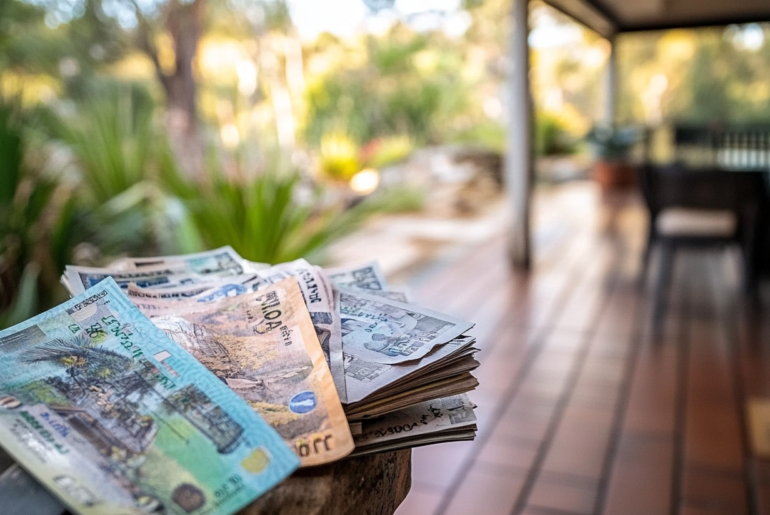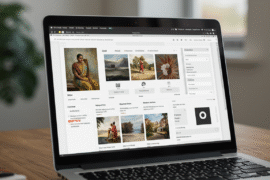This article may contain references to products or services from one or more of our advertisers or partners. We may receive compensation when you click on links to those products or services. Nonetheless, our opinions are our own.
The Reality Check: Why Everything Feels More Expensive
Let’s be honest – if you’ve recently done a grocery shop, filled up your car, or opened an electricity bill, you’ve probably had that sinking feeling in your stomach. It’s not just you imagining things – Australia is facing its biggest cost of living squeeze in decades. That $7 lettuce that made headlines? It was just the beginning. But before you consider selling a kidney (please don’t), let’s talk about practical ways to weather this economic storm.
- Cutting Costs on Essentials Without Sacrificing Quality
- Beating Rising Fuel & Transport Costs
- Finding Extra Income & Budgeting Like a Pro
- Shopping Smart: Stretching Your Dollars Further
- Healthcare & Education Savings Hacks
- Mental Well-being: Handling Financial Stress
- Your Survival Plan
- Recommended Reads
Cutting Costs on Essentials Without Sacrificing Quality
Groceries & Food: The Smart Shopper’s Guide
Remember when a full trolley didn’t require a small loan? Those were the days. But there’s still hope for your grocery budget. The secret? Shop like your grandparents did. They knew things we’d forgotten in the age of convenience.
Start with the basics: hit Aldi first for staples, then fill gaps at Coles or Woolies. Time your shops for markdown hours – most stores discount perishables between 3-5 PM. And those rewards programs you’ve been ignoring? Time to dust them off. FlyBuys and Everyday Rewards aren’t just for points anymore; they’re your ticket to personalized discounts and fuel savings.
Meal planning isn’t just for Instagram influencers. A simple Sunday session planning your week’s meals can slash your grocery bill by 30%.
Housing & Rent: Making Peace with Your Biggest Expense
With rental vacancy rates at historic lows, finding affordable housing feels like winning the lottery. But here’s something most people don’t know: rent is negotiable, even in this market. Come armed with a good rental history and a compelling case (maybe you’re a whiz at garden maintenance?). Maybe there’s a bit of fixing around the rental that if you’re handy enough you can negotiate to complete for the landlord at discounted rental rates. Anything is open for discussion in this climate.
If you’re struggling with mortgage payments, don’t wait until you’re underwater. Lenders have hardship programs, but they’re more helpful if you approach them early. And those government rental assistance programs? They’re not just for pensioners. The Commonwealth Rent Assistance program might be your lifeline if you’re eligible.
Consider the Move: When Relocating Makes Financial Sense
Here’s a truth bomb: sometimes the best way to beat high housing costs is to vote with your feet. That trendy inner-city suburb might be killing your budget when similar lifestyle options exist just a few suburbs over. Let’s crunch some real numbers – moving just 10-15 kilometers from popular areas like Melbourne’s Richmond to Preston, or Sydney’s Newtown to Marrickville, could save you $150-300 per week in rent while adding only 20-30 minutes to your commute.
Think about it: that’s potentially $15,600 a year back in your pocket. Or why not consider making the move abroad and move to New Zealand with Movingle, where your currency goes a little further and houses may be a little cheaper. Of course, that calls for a huge lifestyle change but what could you do with that extra cash? Start an emergency fund? Finally, begin investing? Or just sleep better at night knowing your housing costs aren’t eating 50% of your income?
The sweet spot is finding those ‘bridging suburbs’ – areas that are well-connected but haven’t yet seen their prices skyrocket. Look for suburbs with:
- Reliable public transport (train stations are gold)
- Growing café and shopping scenes
- Upcoming infrastructure projects
- Good access to green spaces
- Multiple supermarket options
Remember, today’s ‘far out’ suburb might be tomorrow’s hotspot. Five years ago, people thought Footscray was too far from Melbourne’s CBD – now it’s one of the city’s most sought-after areas. The key is getting in before everyone else has the same idea.
Pro tip: Before making the move, test-drive your new commute during peak hours. That “only 30 minutes extra” could blow out to an hour in reality. Also, factor in the total cost of moving – Look for backloading options with FindAMover removalists, also worth noting that sometimes staying put might be cheaper if the moving costs outweigh the annual savings. But if the numbers stack up, don’t let a slightly longer commute stop you from significantly improving your financial health.
Utilities & Bills: The Silent Budget Killers
Energy bills giving you heart palpitations? Here’s the truth: loyalty to your provider is probably costing you. Use comparison sites like Energy Made Easy to find better deals. Some providers offer up to 40% off for new customers – that’s money sitting on the table.
Simple changes make big differences. Switch to LED bulbs (yes, they’re expensive initially, but they’ll save you hundreds over time), use cold water for washing clothes, and embrace the ancient art of wearing a jumper instead of cranking the heater. Your grandparents were right about this stuff too. Another may be to ask the utility company to change the due dates of your bills to help with your monthly budget.
Beating Rising Fuel & Transport Costs
Fuel prices making you consider a horse and cart? Before you start browsing stables, try this: download fuel price apps like PetrolSpy. Price cycles are predictable if you know where to look. Combine shopping trips, work commutes with friends, and consider public transport for longer journeys. Did you know in Melbourne, if you travel on the Metro Train System before 7am it will cost you nothing. It’s the perfect excuse to make a change and sell your car if you’re within close proximity of the public transport system. In a climate where everyone is watching their pennies, the used car market comes alive and now that you can sell your car online, your reach of buyers extends to the interstate buyers who will gladly even pay for car and motorcycle movers who will make the run and pickup for them.
If you’re still commuting solo, check if your workplace offers salary sacrificing for public transport passes. Many do, but few employees know about it. That’s tax-free travel, folks!
Finding Extra Income & Budgeting Like a Pro
Side hustles are trendy, but choose wisely. Dog walking, freelance writing, part-time house cleaning, or virtual assistance can fit around your main job without burning you out. The sharing economy isn’t just Uber – think about renting out your parking space, storage, or tools.
The 50/30/20 budget rule (50% needs, 30% wants, 20% savings) might need tweaking to more like 70/10/20 during tough times. Apps like Pocketbook or WeMoney can track your spending automatically, showing you where your money’s really going (goodbye, daily coffee run).
Shopping Smart: Stretching Your Dollars Further
Want to know the best time to buy a TV? End of financial year sales aren’t just for cars. Electronics, furniture, and appliances follow predictable sales cycles. For everything else, there’s Facebook Marketplace and Gumtree. The secondhand economy is booming, and quality items are out there if you’re patient.
Healthcare & Education Savings Hacks
Bulk-billing doctors are becoming rare unicorns, but they exist. Use healthdirect.gov.au to find them. For prescriptions, ask about generic brands – they’re the same medicine at a fraction of the cost. And that gym membership eating your budget? YouTube has fantastic free workouts, and parks have exercise equipment.
Mental Well-being: Handling Financial Stress
Financial stress is real, and it’s okay to feel overwhelmed. The National Debt Helpline (1800 007 007) offers free financial counseling. Sometimes, just talking to someone who understands can make a world of difference.
Your Survival Plan
Start small: audit your subscriptions (do you really need three streaming services?), check your eligibility for government assistance, and build an emergency fund one dollar at a time. Rome wasn’t built in a day, and financial security won’t happen overnight.
Remember, if you could manage your financials responsibly in this climate, you can turn it into a comfortable life when times are good. In the meantime, take control where you can, be kind to yourself, and maybe plant a vegetable garden. If nothing else, it’s cheaper than therapy – and you might get some tomatoes out of it.
The cost of living crisis is tough, but Australians are tougher. We’ve weathered economic storms before, and we’ll weather this one too. Just maybe with more homemade lunches and fewer takeaway coffees.

Reviewed and edited by Albert Fang.
See a typo or want to suggest an edit/revision to the content? Use the contact us form to provide feedback.
At FangWallet, we value editorial integrity and open collaboration in curating quality content for readers to enjoy. Much appreciated for the assist.
Did you like our article and find it insightful? We encourage sharing the article link with family and friends to benefit as well - better yet, sharing on social media. Thank you for the support! 🍉
Article Title: Tips to Navigate the Australian Cost of Living Crisis
https://fangwallet.com/2025/02/20/tips-to-navigate-the-australian-cost-of-living-crisis/The FangWallet Promise
FangWallet is an editorially independent resource - founded on breaking down challenging financial concepts for anyone to understand since 2014. While we adhere to editorial integrity, note that this post may contain references to products from our partners.
The FangWallet promise is always to have your best interest in mind and be transparent and honest about the financial picture.
Become an Insider

Subscribe to get a free daily budget planner printable to help get your money on track!
Make passive money the right way. No spam.
Editorial Disclaimer: The editorial content on this page is not provided by any of the companies mentioned. The opinions expressed here are the author's alone.
The content of this website is for informational purposes only and does not represent investment advice, or an offer or solicitation to buy or sell any security, investment, or product. Investors are encouraged to do their own due diligence, and, if necessary, consult professional advising before making any investment decisions. Investing involves a high degree of risk, and financial losses may occur including the potential loss of principal.
Source Citation References:
+ Inspo












































